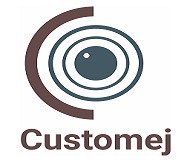Digital Product Management is an ancient discipline that has seen resurgence in the digital age. It’s important not only to understand how it came about, but also to take note of some best practices to ensure you’re using this evolution for the benefit of your product and company.
appkods | kibhologin | ghdsportsapp | onlineclassifiedsads | skyreachseo
In today’s world of technology, software product management is a must have skill when your career depends on knowing how to get the most out of online tools and resources to market a brand or build a solid business. There are many different aspects of digital product management including: making products that people actually want, building brands that people recognize and working towards a healthy bottom line.
The team at Mind The Product recently shared what they believe are seven essential skills necessary to survive in the digital economy (shared by marketingland). They come from six different contributors, who each bring their own perspective on why these skills are relevant today.
Here’s our summary of these perspectives: – Get closer to customers – Innovate with speed – Compete on customer experience – Prioritise agility – Keep team communication fluid – Meet business goals Here are some insights into all seven below, with an explanation of how they relate to the digital economy.
Here are top 7 essential digital product management skills for the digital age:
- Get closer to customers
Young people are all well-versed in digital, and well aware of how much it can impact their lives. According to research by PWC, Generation Z (people born around 1996 onwards) want brands to deliver seamless personalized experiences across all channels – they want everything tailored to them. Asking for feedback is no longer enough – as consumers become more versed in technology, they expect companies to keep up with their needs as well as talking to them.
- Innovate with speed
In the current fast-paced world, consumers have been taught that if they don’t get things quickly on the internet, this means they’re losing money. While businesses often value a considered approach over moving too quickly, the effective digitalization of companies across industries has shown that nimbleness is often rewarded with high growth rates.
- Be data-driven, not opinion-driven
As people become more exposed to the idea of big data and analytics, they gain an understanding of how opinions can be swayed by their context or bias. Digital culture is now full of “hacks” for this; from fake news – to fake celebrities on Facebook – no one trusts information unless it’s backed up with double checked evidence (and sometimes even then).
- Encourage every individual to look after the world around them online
People have started taking responsibility for the content they post online – whether they are conscious about how it might reflect them in real life or not. With so much available at our fingertips we need to protect ourselves and others from the negative effects of information overload.
- Build digital literacy skills
People are not born with an understanding of how to be safe online. We need to teach them the basics around being responsible, law-abiding citizens so they stay safe and know what’s acceptable. This could be done by schools or parents – or both! We also need to ensure that people have the right digital literacy skills so they can find information for themselves, have a greater understanding of how it was researched, filtered and presented.
- Support those who are victims or perpetrators of cyberbullying/online abuse
The current systems for reporting online harassment are far from efficient. People should always report bullying to someone, whether it’s offline or on social media platforms (and if there isn’t someone available then you may have to contact the local police). At present, many people do not report the harassment they receive online because of a lack of knowledge about what to do or where to go. This needs to change.
- Share how you deal with cyberbullying/online abuse so others can be helped/inspired
There are many ways in which someone can report abuse but it’s likely that if they don’t know what to do or where to go – nothing will be done about it! We need more information out there so people know how to respond if they’re either receiving this type of treatment online or if someone is sharing it too much.
Thus digital product management skills come in very handy when it comes to dealing with the abuse problem and rooting it out at its source. Digital product management is all about creating great products and services for people to actually use. It’s also about helping people get the most out of them so they can fulfill their needs or desires. In fact, it’s about so much more than just products – digital product managers are usually the ones who come up with great ideas for new things too.
One way that digital product management drives engagement with platforms like Facebook is by making sure that there are plenty of tools available for users, such as blocking abusive comments. This prevents online abuse from taking place in the first place! With hate speech now receiving its own special category on Facebook, things are really looking up when it comes to removing this problem once and for all.
absoluteittech | novelsoul | topshowbizztoday | globaladsclassifieds | lponicolo




